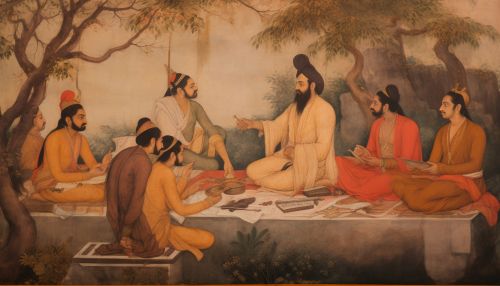Charvaka
Overview
The Charvaka philosophy, also known as Lokayata, is an ancient school of Indian philosophy that is characterized by a materialistic and atheistic outlook. It is considered one of the heterodox or nāstika philosophies in the Indian tradition, as it rejects the authority of the Vedas and the spiritual concepts of Atman (soul) and Brahman (universal consciousness).


History
The origins of Charvaka philosophy are unclear, with some scholars suggesting it may have emerged as early as the 7th century BCE. The primary sources of Charvaka philosophy are not available, and most of the information about this philosophy comes from the critiques of its opponents.
Philosophy
Charvaka philosophy is based on a form of empiricism, asserting that only direct perception can be a reliable source of knowledge. It rejects inference as a means of knowledge, arguing that it can lead to erroneous conclusions. It also rejects the concepts of reincarnation and karma, asserting that the soul does not survive death.
Ethics
In the realm of ethics, Charvaka philosophy advocates for the pursuit of sensual pleasure and material wealth, rejecting the ascetic ideals of other Indian philosophies. It argues that happiness in this life is the ultimate goal, and there is no need to worry about a possible afterlife.
Criticism
Charvaka philosophy has been criticized by other Indian philosophical schools for its materialistic and hedonistic outlook. It has also been criticized for its rejection of inference as a valid means of knowledge.
Influence
Despite its heterodox status, Charvaka philosophy has had a significant influence on Indian thought. Its materialistic and empirical outlook has been echoed in the works of many later Indian thinkers.
